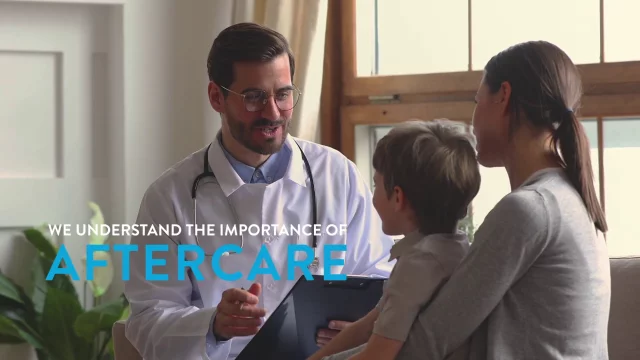Global Point of Care
Improving Type 2 Diabetes and Hypertension Services in Honduras
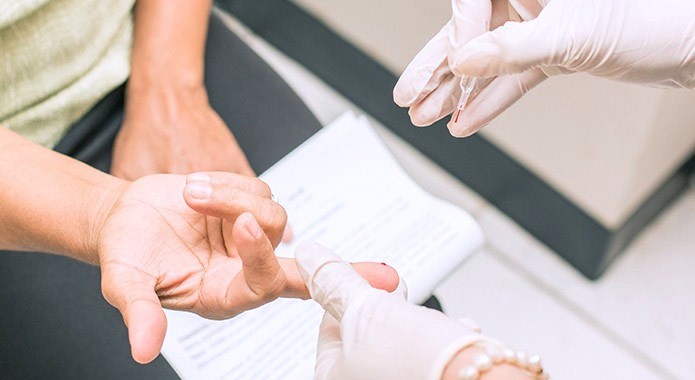
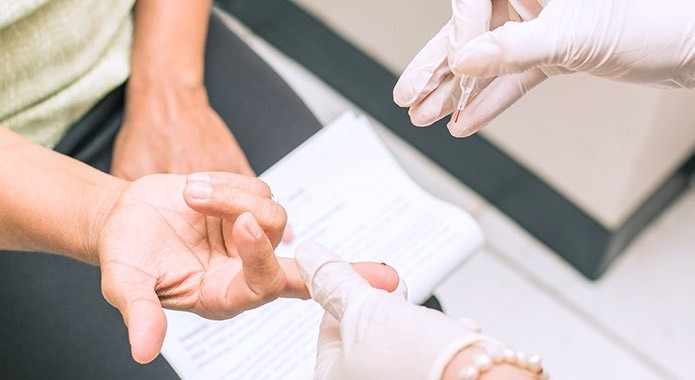

NOTE: PSI is a global health organization that focuses on making it easier for people in the developing world to lead healthier lives and plan the families they desire by marketing affordable products and services.
One of the ways in which PSI does this is through strategic partnerships which is why in 2016, PSI and Alere embarked upon their second Alere Fellows Program, sending two Alere employees to work collaboratively with PSI to solve a global health challenge.
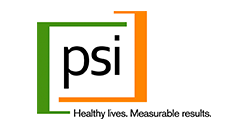


In Honduras, non-communicable diseases (NCDs) are on the rise and premature deaths due to NCDs far surpass deaths due to other diseases. The majority of the Honduran population only has access to the public health care system. However, public hospitals and health care centers are largely overwhelmed and under-supported; therefore, many patients do not receive timely disease diagnosis, appropriate treatment or long-term care. Private healthcare services do exist but are perceived as expensive and not easily accessible.



In Honduras, non-communicable diseases (NCDs) are on the rise and premature deaths due to NCDs far surpass deaths due to other diseases. The majority of the Honduran population only has access to the public health care system. However, public hospitals and health care centers are largely overwhelmed and under-supported; therefore, many patients do not receive timely disease diagnosis, appropriate treatment or long-term care. Private healthcare services do exist but are perceived as expensive and not easily accessible.
The Pan-American Social Marketing Organization (PASMO), PSI’s local network member in Latin America, is working to address barrier to care for common NCDs, namely hypertension and type 2 diabetes. PASMO’s “Clínica Médica Red Segura” model clinic offers high-quality and affordable preventative health services, including testing hypertension and type 2 diabetes, for low and lower-middle income patients. PSI’s goal is to replicate this model throughout Central America via social franchising.
As part of the 2016 Alere Fellows Program, we had the opportunity to support PSI in better understanding patient medical needs and their ability and willingness to pay for hypertension and type 2 diabetes services. PSI believes that the patient must be the center of any strategy, and as such, our fieldwork focused on speaking directly with patients and obtaining a deep understanding of their needs. Through conducting focus groups, one-on-one interviews and a market landscape, we were able to gain important insights that drove the design of our proposed strategies.
Disease prevention and wellness are not part of the culture in Honduras, adding a layer of complexity to an already complex challenge.
During our fellowship in Honduras, we learned a lot about how hypertension and type 2 diabetes patients manage their health including their fears and insecurities about increasing and maintaining their health.
“Living with diabetes, death could happen at any time.”
“Hypertension is somewhat unavoidable. Maybe I could exercise, but I don't have time.”
After hearing from the patients, we considered healthcare services that could meet their needs, and then asked their opinion about the relevance of those services. We learned that basic services such as medicines (80%), urine/blood exams (58%) and nutritional/physical counseling (45%) were of greatest interest to the patients.
Through these conversations, we concluded that disease prevention and wellness are not part of the culture in Honduras, adding a layer of complexity to an already complex challenge. Much of the population does not seek preventative checkups and lacks adequate healthcare information. As result, many diagnoses of type 2 diabetes and hypertension occur at later stages of those diseases.
After identifying that there was a general lack of information and awareness around NCDs and the inability to pay for products and services were the greatest threats to client’s health, we were able to design and test a tiered packaging approach that would offer clients a variety of options that accounted for desired services and ability to pay (see Figure 1). Additionally, we proposed a marketing and promotional strategy that would highlight important information around NCDs and services offered by Red Segura, increasing the local community’s awareness while simultaneously driving traffic to the clinic.
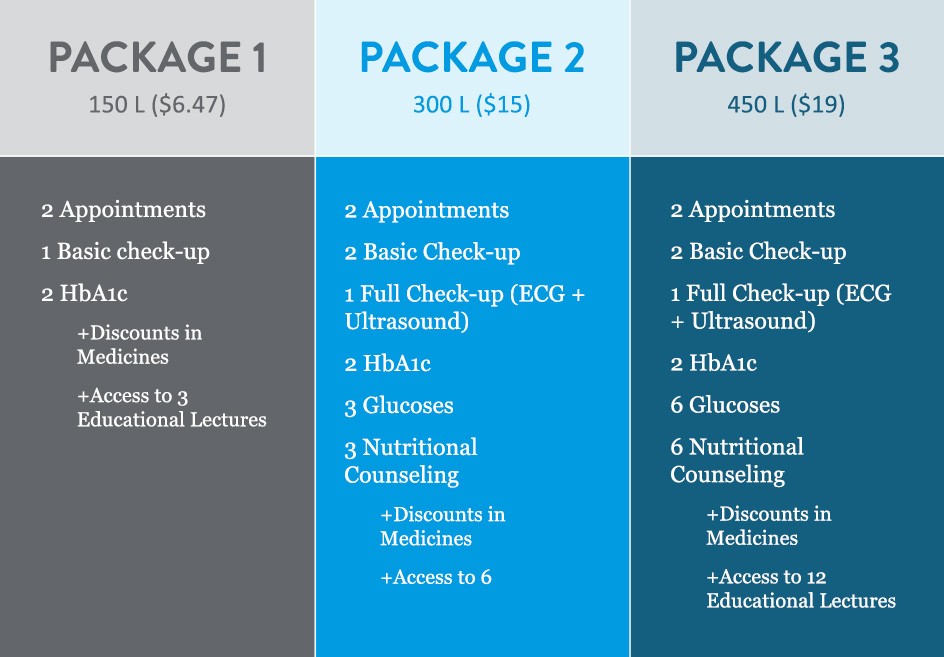
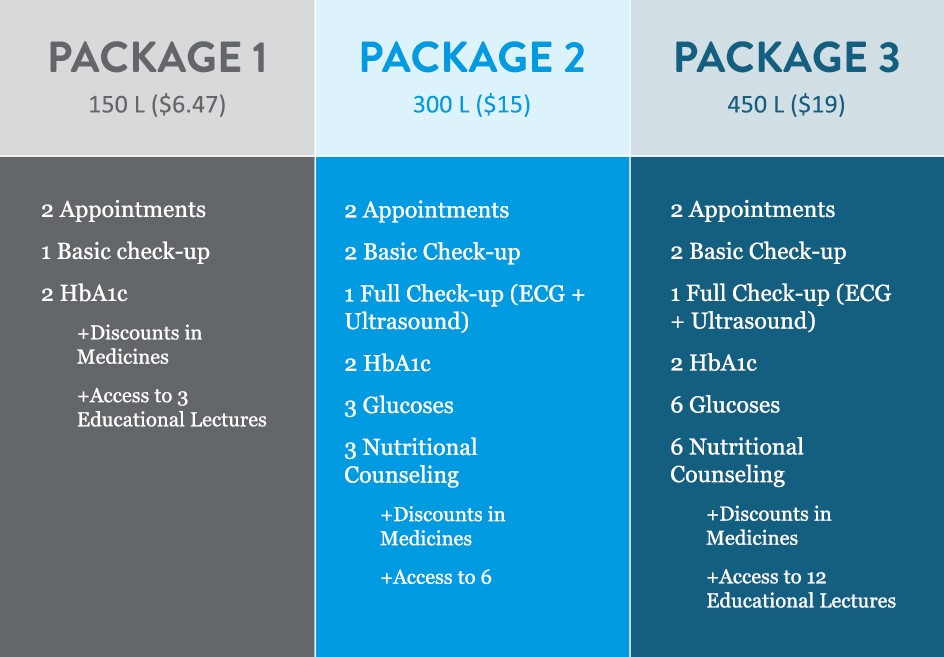

Figure 1. Tiered packaging approach for preventative healthcare services for patients with type 2 diabetes and hypertension in Honduras.
It became clear that PSI and PASMO, through the Clínica Médica Red Segura franchise have the opportunity to change type 2 diabetes and hypertension management in Honduras by offering basic services and providing quality care at reasonable prices.



